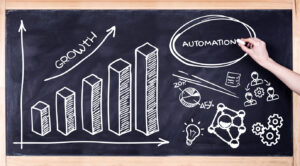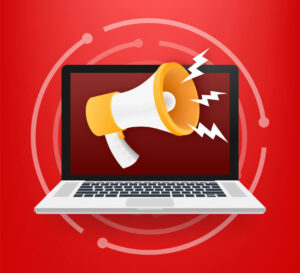In many areas of digital marketing, we are witnessing a rise in the use of AI and automation. By automating processes that were previously performed manually, we can greatly increase our efficiency, get more done, and ultimately make businesses more profitable.
This trend has spread to PPC marketing and in time, it will transform how businesses create and manage their ad campaigns. In this guide, I take a look at PPC automation, what technologies are currently used, and the benefits it provides.
What is PPC Automation?
Currently, many steps in PPC marketing are manual. We have to do a lot of work to manage our campaigns. Using tools like Google Ads is not always a quick process and there are a lot of repetitive tasks.
PPC automation aims to address this and automate manual work so you can use your time more effectively. It also takes out some of the guesswork and room for human error that can persist in PPC marketing.
Examples of Automation in PPC
PPC automation is still a work in progress but it is already being used by several major platforms – mainly Google and Facebook:
Google Ads Performance Max
Google Ads Performance Max model uses AI technology to largely automate a range of PPC processes including budget optimization, attribution, and bidding.
The ads are generated based on your campaign objectives (or goals) such as generating new leads, increasing website traffic, or increasing sales. With your campaign objectives created, Performance Max then goes and does most of the leg work and creates ads to suit.
You can still make changes where necessary and tweak the ads, but this service greatly improves PPC efficiency and allows you to do more with less time and money.
Facebook Ads Advantage+
Facebook has its Advantage+ app campaigns that aim at maximising the performance of your ads with minimum effort. This involves a heap of AI machine learning to give you the best ad copy, headlines, and more.
You can essentially create ad campaigns with less user input but still get fantastic results. For example, there is the possibility to create ads in batches of up to 50 at once which greatly reduces your workload in duplicating ad content. The placement of ads is also automated and optimized using AI so you reach the right people at the right time.
The Benefits of Automated PPC
You may be wondering what the point of automation in PPC is so let’s look at the benefits:
- Improved efficiency.
- Greater control over your PPC budget.
- More growth opportunities.
- Improve efficacy
At its most basic, PPC automation allows you to get more done and can greatly boost your efficiency. Instead of spending time on tedious manual tasks, you can set up the automation and concentrate on other important things which in turn can lead to more growth opportunities.
Automation also helps control PPC spending and make your campaigns more cost-effective. You or the best PPC agency you use can achieve more in a shorter time and hopefully, the automation should yield better results. This all works towards lowering key spending metrics like CPC.
3 Ways PPC Can Be Automated
We know the benefits, and we have seen some real-life examples, but in what other ways does PPC automation work?
1. Google Ads - Dynamic Search Ads
Aside from Performance Max, Google also has Dynamic Search Ads which are created automatically relating to your website content. When choosing this type of ad, Google analyses your website and matches the content to relative keywords.
If someone then searches for those relevant keywords, Google creates a dynamic ad to match. To take this one step further, Google Ads also has an AI PPC management tool that gives ad suggestions based on info found on your website.
2. Scripts to create automated ads
Platforms like Google Adwords allow businesses to utilize custom scripts to make automatic changes to ads while they are running. The scripts are typically created using JavaScript and they can also help with bidding, ad alerts, and analytical reports.
Obviously, coding knowledge is required here, but if your business has someone with this skill, you can greatly improve the efficiency of your Google Ads campaigns and workflow.
3. IF functions for automatic ad adjustments
IF functions are incredibly powerful and allow you to make automated changes to your ad copy when specific criteria are met. This type of PPC automation gives you the ability to target specific customers, but also work at different stages of the buying process.
For example, maybe you write an IF function that changes the value of a product discount based on who is viewing the ad. Companies often do this for customers who have abandoned their shopping cart before making a purchase.
The initial discount everyone else sees might be 10%, but the IF function can allow your PPC ad to display an improved discount of 15% for those who have abandoned their shopping cart, in the hope it prompts them to reconsider their purchase.
We Are Just Witnessing the Beginning of PPC Automation
PPC automation is in its infancy and this is only the start. As ad platforms like Google Ads and Facebook Ads develop technologies, we can expect a greater deal of automation that should make PPC management easier. Add into the fray third-party tools and apps that also utilize automation, and the PPC processes we do today could look very different in a few years.









